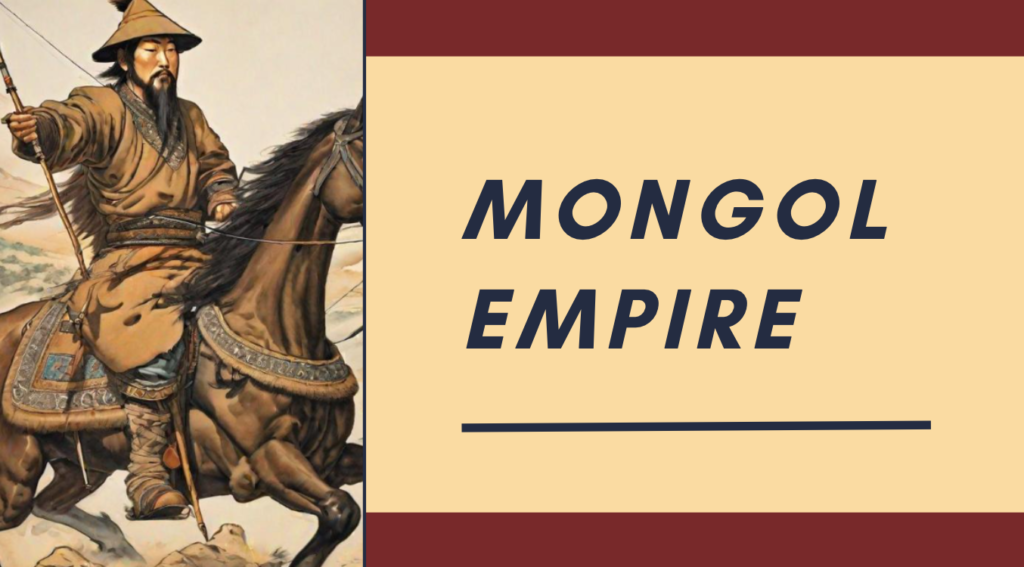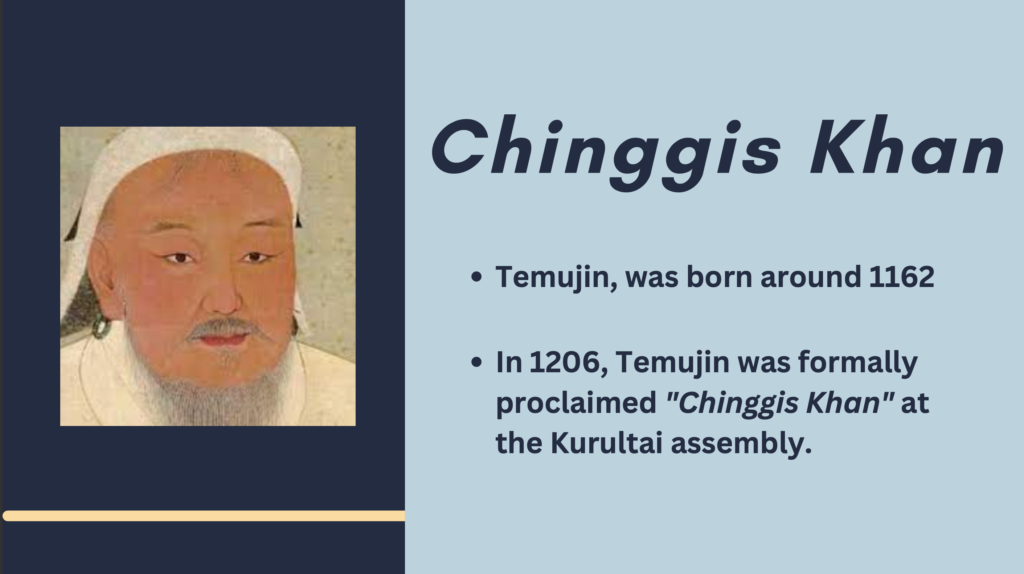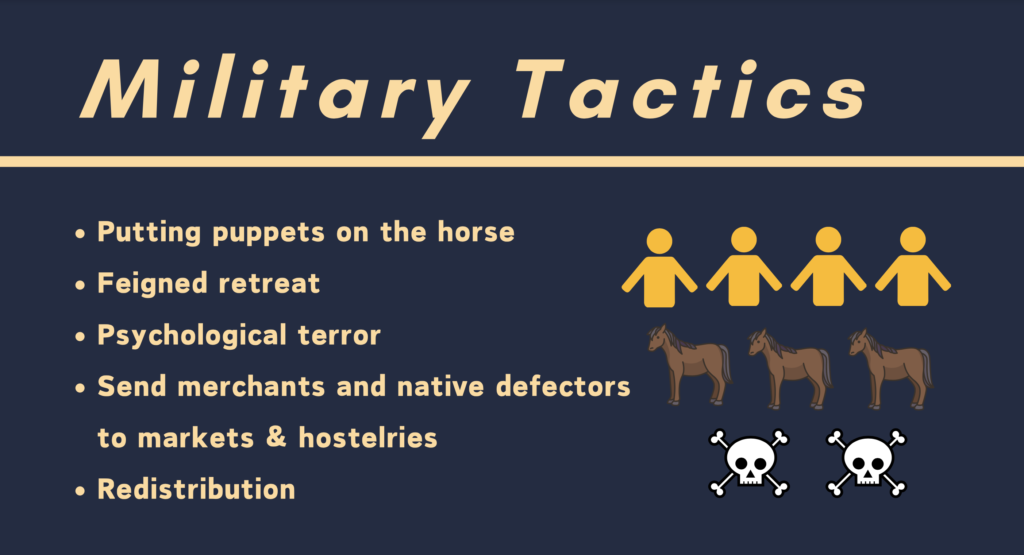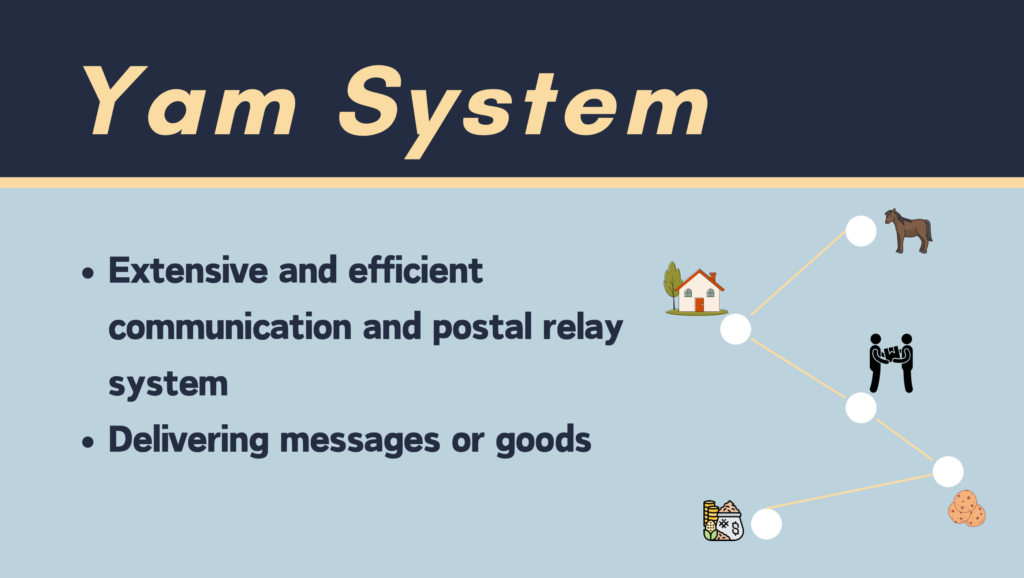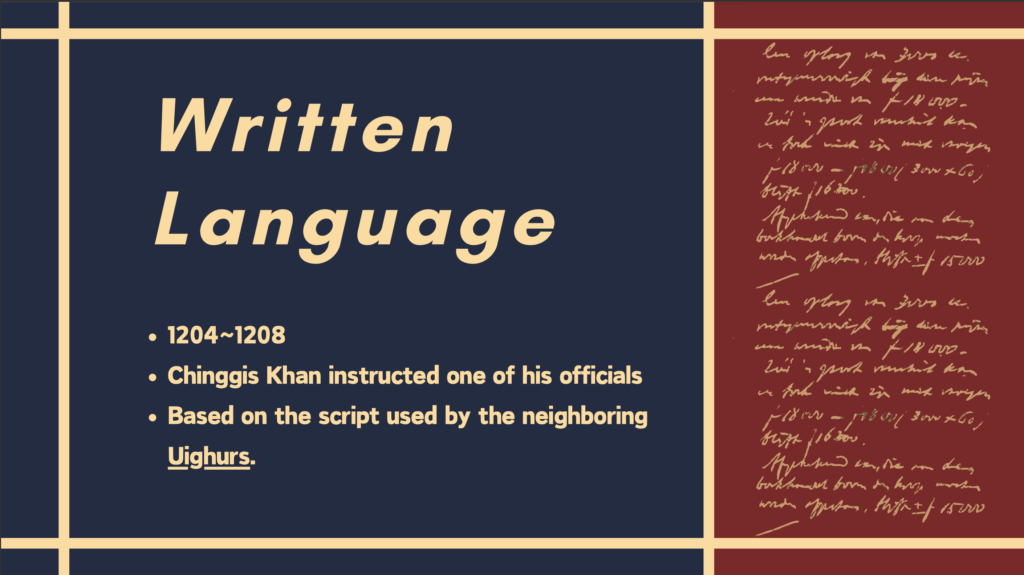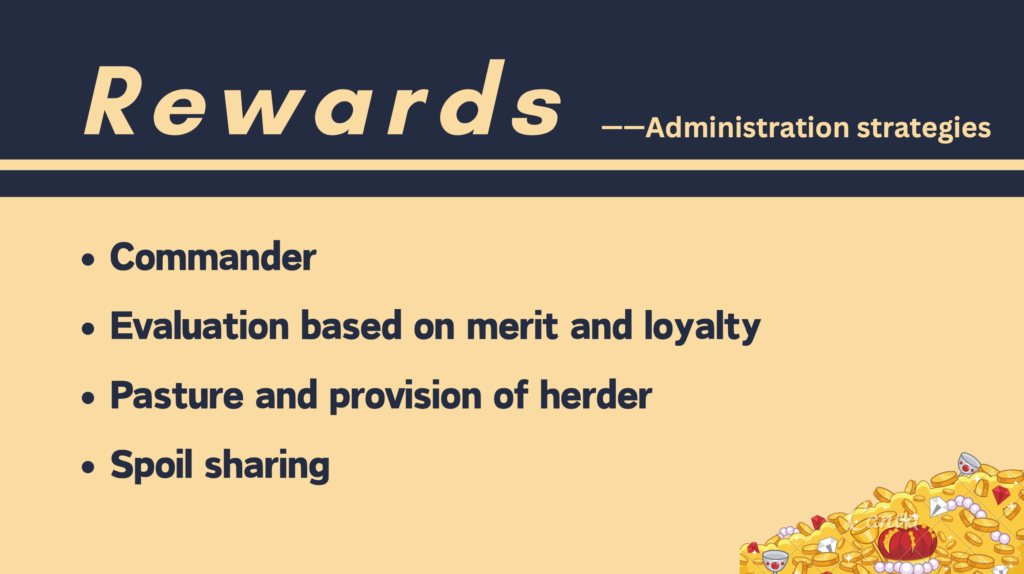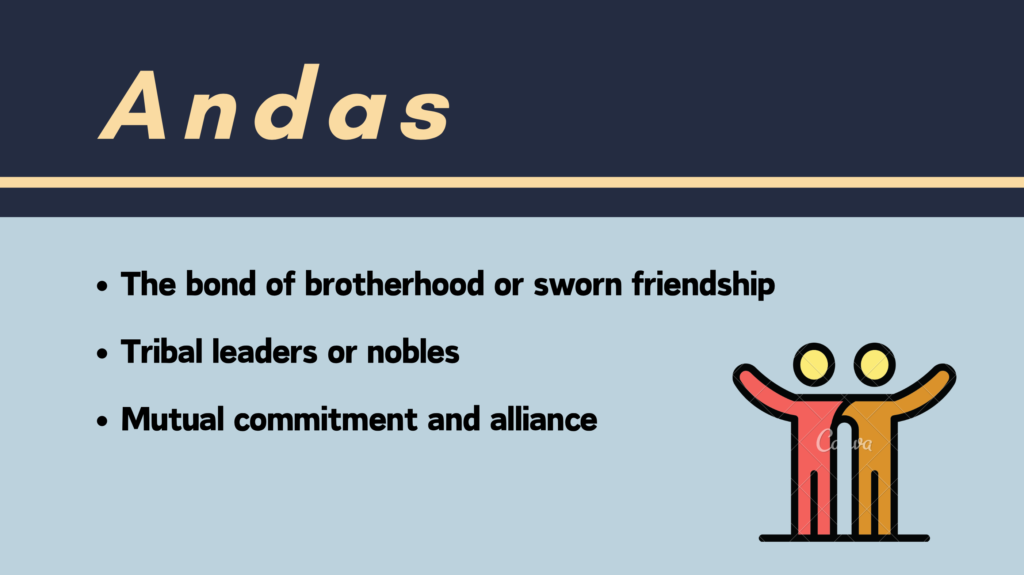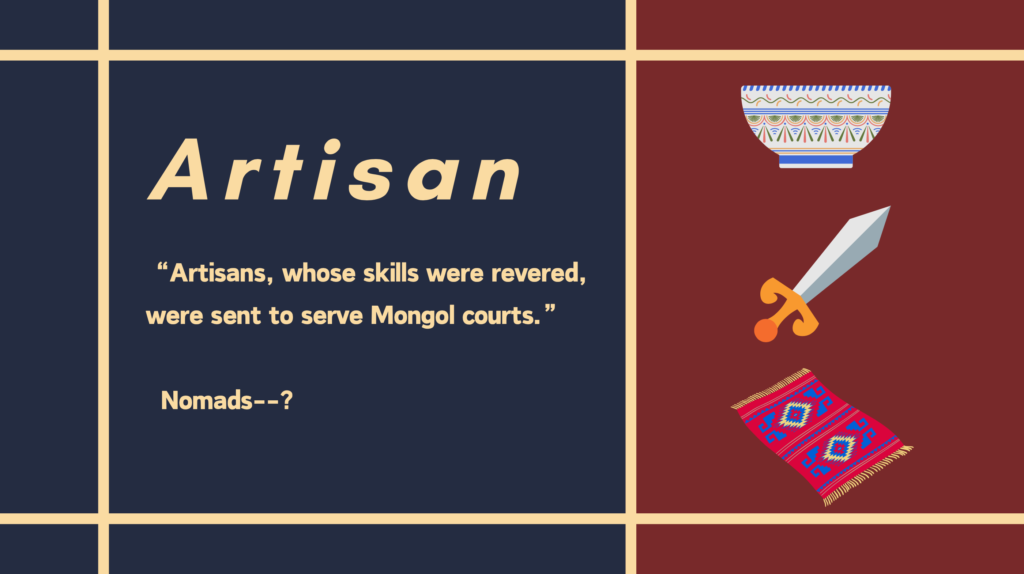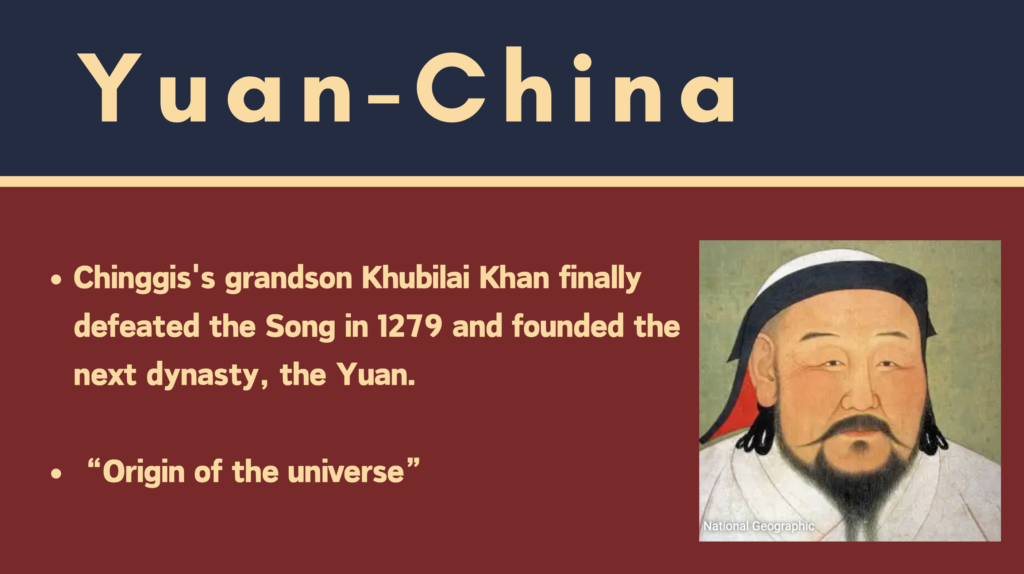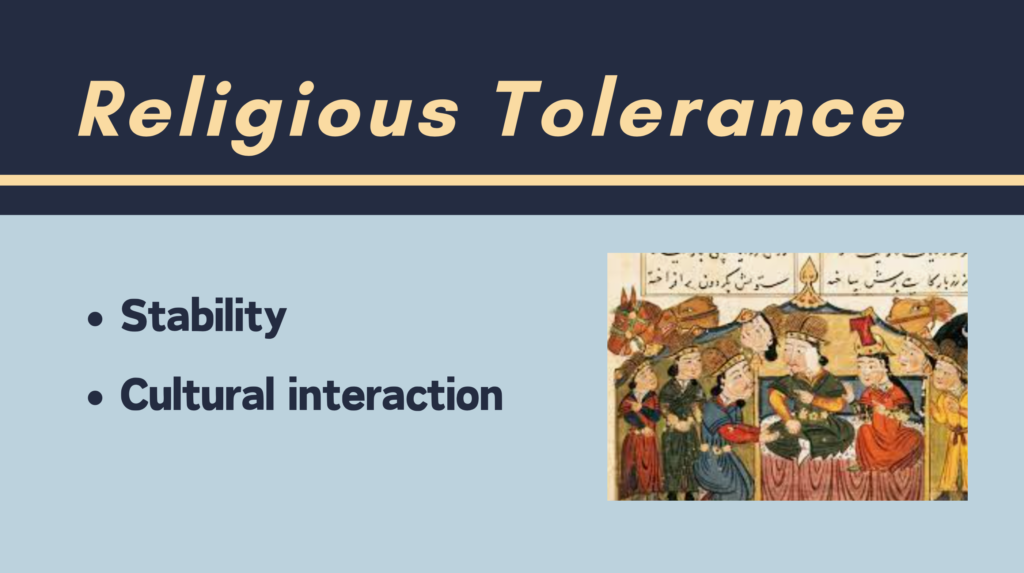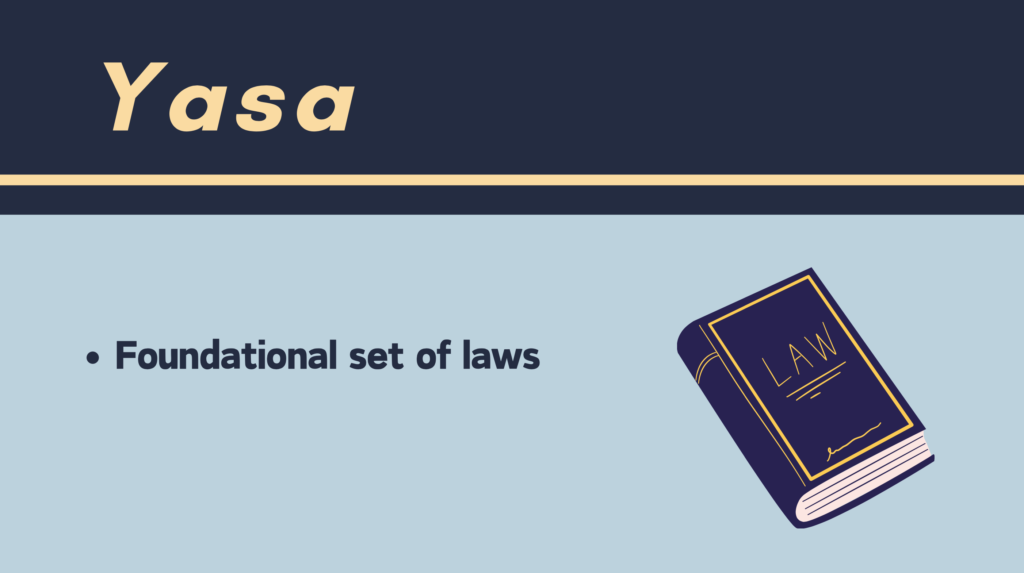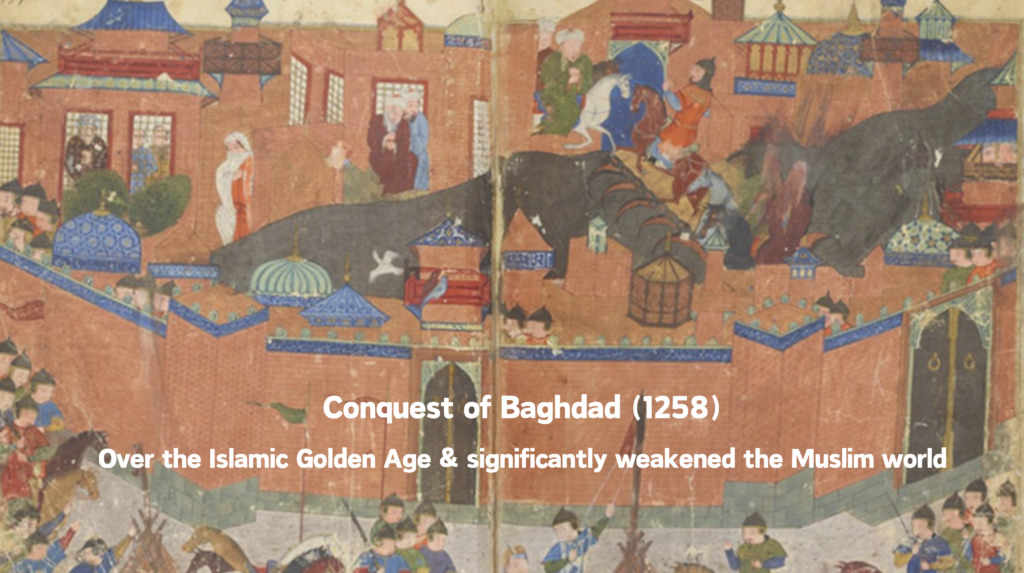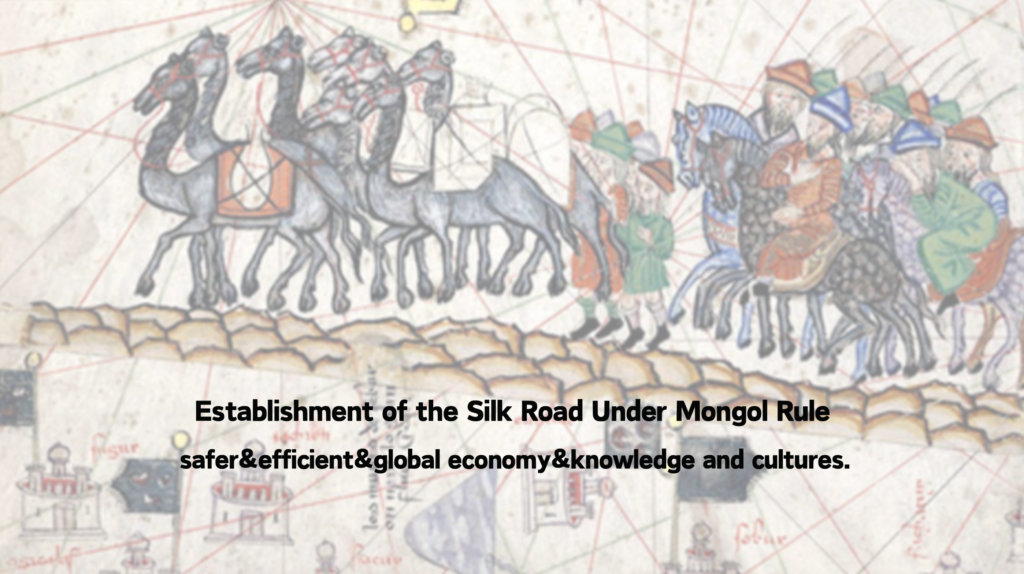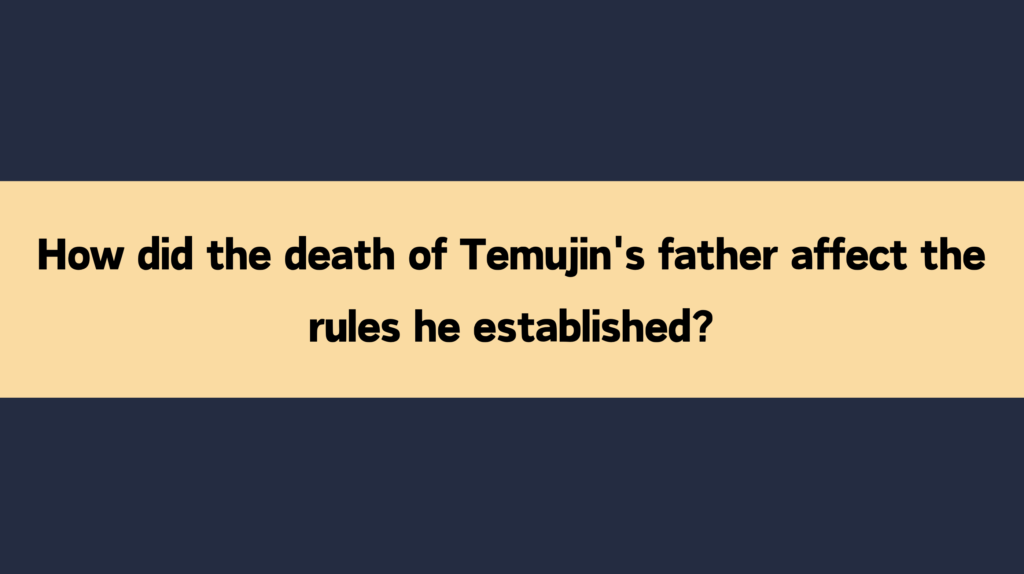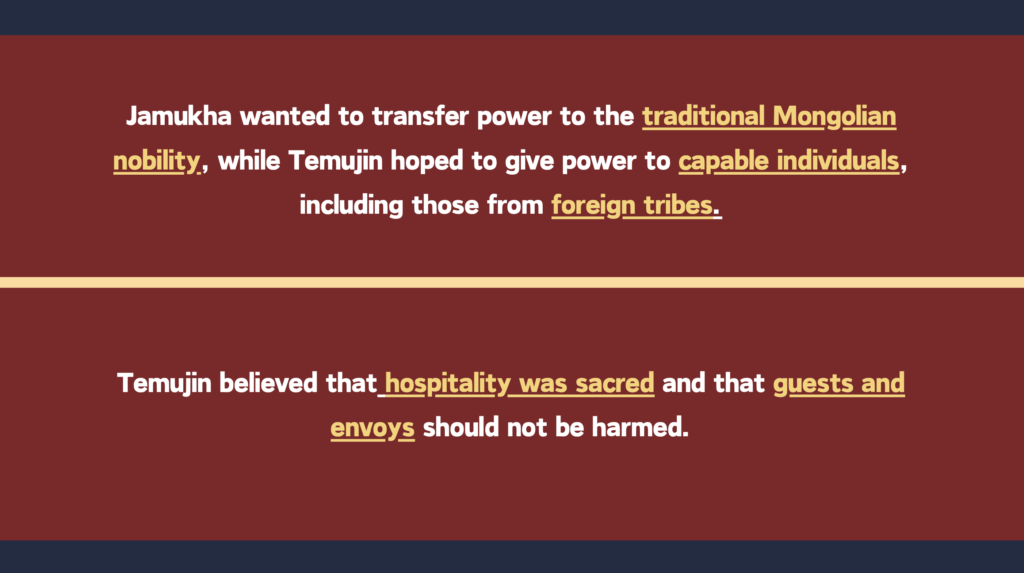Mongol Empire Policy Paper
Introduction
In the history of the Mongol empire, the undeniable fact is their strong and cruel military power. It allowed Mongols to expand at an incredible speed. However, since the nomadic people relatively lack experience in how to rule such a large empire. Therefore, this essay will give some advice to the Mongol empire in the period of Khan Chinggis to help him maintain the stability of the empire. It contains policies-suggestion of the administration, succession, law, rewarding and citizenship, mixed marriage, Emperor apotheosis, religion, culture, and history maintenance.
Background information
Khan Chinggis who formerly known as Temujin, succeeded in unifying the various Mongol tribes and establishing a powerful military force. Under Genghis Khan’s leadership, the Mongol army undertook a series of conquests, including those of Central Asia, Persia, Eastern Europe, and China. These conquests made the Mongol Empire the largest land empire in the world at the time.
Policies-Suggestion
1. Administration
-In order to contain more perspectives from different nations in ruling and balancing the power of the empire, I suggest that Khan Chinggis and his generals select the members for these 2 congresses to be the first session. X should be Mongol nobles and leaders, and Y should be non-Mongol nobles, artisans, and others who have outstanding performances in their fields. The most important events must be discussed by the emperor and 2 congresses, such as decisions for succession and legislation.
Respond for 13,18
2. Succession
-Eligibility: Candidates of the successor include sons of the emperor and other 3 leaders elected by 3 main Mongol tribes (These 3 tribes should each be chosen by the emperor, congress X, and Congress Y). The successor must be of Mongol lineage, half is also accepted, and they must join the army before. All candidates have participated in the military before and have contributed to it. This is for the successor, which means the future emperor’s legitimacy, to prove their leader is capable and orthodox.
-Election: The next successor should be elected after the discussion of the emperor and congresses, to ensure the fairness of the election. Each member has 2 votes. If there are candidates get the same number of votes, the emperor has the power to decide which one.
Respond to concerns 15 22
3. Law
-2 Congresses work together to make the basic law of the empire, and the local tribes, governments, and nations have the right of explain the laws and right of execution, meaning that they can have some differences in specific rules considering their varied cultural backgrounds, however, it cannot be contradict with the basic law made by central congresses. For example, for Iran women, might need to wear hijabs to cover their body, which is an important policy in their law. But in China, since people don’t believe in Islamic doctrine, they won’t need to do this. This will be the empire’s concession for diversity and inclusion.
-The congresses will hold a leading meeting every 3 years. Leaders of local governments should come to the meeting to report their work. The congresses can randomly pick 2 places and go there for the check.
-Each local government must have 2 leaders, one is Mongol appointed by the central government(congress or emperor) and another one can be Mongol or non-Mongol from the local. The second and third one is designed to prevent local governments from detaching from central controls.
Respond to concerns 17 20 21
4. Rewarding and Citizenship
-Mongols can learn from the Roman Empire, which emphasizes the value of citizenship. When considering the reward system, for Mongols, the government can give them money and military rank, and for non-Mongols, the government can give them Mongol citizenship and give rewards to their hometown. This can help to get the loyalty of non-Mongols and promote the integrated of the empire.
-To elevate the value of Mongol citizenship, non-Mongols will have a ceiling for the military or official rank.
Respond to concerns 19
5. Military
-In order to maintain the strong military power of Mongols, all males, except disabilities, are forced to join the army from 16 to 26 years old. If they got a promotion during this period, they are being suggested to stay in the army, if they are not, they could decide whether to change to other fields.
-Generals will be on duty rotation every 5 years, which means their ministries and soldiers will be regularly changing. It is to prevent every general from getting too close to soldiers that they might be threatened by the emperor.
Respond to concerns 14 18
6. Mixed marriage
-To reinforce loyalty and integration, the government will encourage mixed marriages, both more plebeians and nobles. As it promotes the connection between different nations and cultures, it can enhance the stability of the empire.
-The children born with mixed marriages will automatically qualify to get Mongol citizenship, but the parents can also choose to let children join other nation’s citizenship.
14 15
7. Emperor apotheosis
-To enhance the great of the emperor’s sovereignty, the emperor can clarify himself as the representation of the Mongol religious God in the human world. By building a connection with supernatural power, people will respect and obey the emperor.
15
8. Religious
-Allowing and respecting all religions to exist.
-Any leader of religion cannot recruit military power, and they also cannot enter the military management system. This can avoid giving too much power to the religious.
7
9. Culture and history maintenance
-An official group will be responsible for recording every big event such as the change of succession and war. It will be written in books, each year have one book.
10
Conclusion
These policies are designed to help the empire stable, avoid rebellion, and enforce obedience. The main philosophy is to promote the integration of cultures and nations, be aware of the potential risks that might cause rebellion and balance the power of different institutions.


